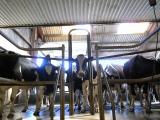Nov 7, 2005 (CIDRAP News) – Two more human cases of H5N1 infection—one of which was fatal—have been confirmed in Indonesia, the World Health Organization (WHO) announced today.
A 19-year-old woman in Tangerang, near Jakarta, fell ill on Oct 19, was hospitalized on Oct 26, and died two days later, WHO said in a news release.
The woman's 8-year-old brother fell sick Oct 25. He is still in the hospital but is in good condition, WHO said.
Sick and dying chickens were found in the boy's neighborhood. His sister was also known to have visited the area, field investigators found. The Indonesian agriculture ministry is investigating, WHO added.
These cases bring the number of confirmed human H5N1 infections in Indonesia to nine. Five of those cases were fatal. The latest cases raise the WHO's tally of confirmed cases to 124, of which 63 were fatal.
Indonesian authorities are warning that the country's response to avian flu is hampered on several fronts: lack of funding, lack of veterinary help, and poor coordination of efforts among different levels of government, according to a Jakarta Post story online today.
"The damage is so widespread because of the lack of resources," said Musni Suatmodjo, chief of animal health at the West Java Husbandry Agency. "I don’t think we can be free of the bird flu as targeted."
United Nations officials echoed some of those concerns in an Agence France-Presse (AFP) story today. Peter Roeder, an animal health officer responsible for viral disease work in the UN Food and Agriculture Organization (FAO), said response efforts need to get a jump-start because flu season is closing in.
"This is extremely urgent. The reason is, we're in November, which is the start of the epidemic season for avian and human influenza," Roeder told AFP. "This could provide the conditions for the emergence of a pandemic strain, so reducing any risk is very much an emergency issue which needs to be done quickly."
Roeder also said the FAO is creating four disease-control centers on Java Island and enlisting the help of up to several thousand people for disease surveillance. Disease-control center directors will train trainers, who will then go into communities and educate residents about spotting avian flu.
If the model works on Java, FAO would likely employ it elsewhere, Roeder added.
That plan has similarities to Thailand's community health workers program, in which people are trained to ask a set of questions pertaining to avian and human health and to report problems.
China asks help with testing
As FAO is trying to help Indonesia with surveillance, the WHO has been asked to help China test three possible human cases of H5N1.
China announced yesterday that it was seeking WHO's help to test samples from three people in Hunan province, where an H5N1 outbreak has occurred in poultry. A 12-year-old girl died Oct 13. Her 9-year-old brother and a 36-year-old middle school teacher have recovered from "unknown kinds of pneumonia," according to a story on the China Daily newspaper Web site. All three lived in or near Wantang, where a poultry outbreak occurred last month.
The girl and her brother initially tested negative for the virus, but authorities later said they couldn't rule out the possibility of infection, the Associated Press (AP) reported. It wasn't clear what, if any, follow-up testing was conducted and what results were found.
Roy Wadia, a WHO spokesman in China, said it is not unusual to have negative initial tests of patients who are subsequently shown to be infected, according to an AP story yesterday.
"This is a reiteration of how much of a public-health threat bird flu really is. Sometimes it takes a human case or a suspected human case to raise the alarm, to remind us that no country, whether China or anywhere else, can afford to be complacent," Wadia told the AP.
In addition to China's unusual step in seeking WHO's help, the country is taking a number of other steps to ratchet up its avian flu containment efforts. Beijing's government shut down all 168 live poultry markets—as well as pet bird markets—in the capital city yesterday, AFP reported. And although people can continue to keep pet birds at home, the popular tradition of allowing pet birds to fly around Beijing has been banned. Movement of live poultry into Beijing is also restricted.
China's cabinet also met with members of the Central Military Commission on Nov 4 to draft a plan for using the country's 2.3 million–member military to stop avian flu from spreading to people, Bloomberg news reported Nov 5.
More countries have pandemic plans
The world's top health experts gathered in Geneva today to convene a 3-day conference to coordinate global response to the threat of a flu pandemic. Participants urged countries that haven't already drafted a response plan to do so, the AP reported today.
Six months ago, fewer than 40 countries had a strategy for addressing an inevitable flu pandemic, said Mike Ryan, director of epidemic and pandemic alert and response for WHO. Today 120 countries, or roughly 60% of WHO member states, have plans, he said.
"That's pretty unprecedented in public health, but we need to push it further, into the implementation, the rehearsing and the testing," Ryan told the AP. European Union planners will work through flu scenarios in a roundtable exercise next month, he added.
The Geneva conference has gathered the largest group of senior officials of any meeting since avian flu began spreading in 2003, according to an AFP report.
World Bank economist Milan Brahmbhatt estimated the cost of a pandemic after 1 year at $800 billion, AFP noted.
Lee Jong-wook, WHO director general, today was quoted by AFP as saying, "We don't know when this [pandemic] will happen, but we know it will happen. . . . If we are unprepared, the next pandemic will cause incalculable human misery . . . no society will be exempt and no economy unscathed."
See also:
WHO news release
http://www.who.int/csr/don/2005_11_07/en/index.html


















